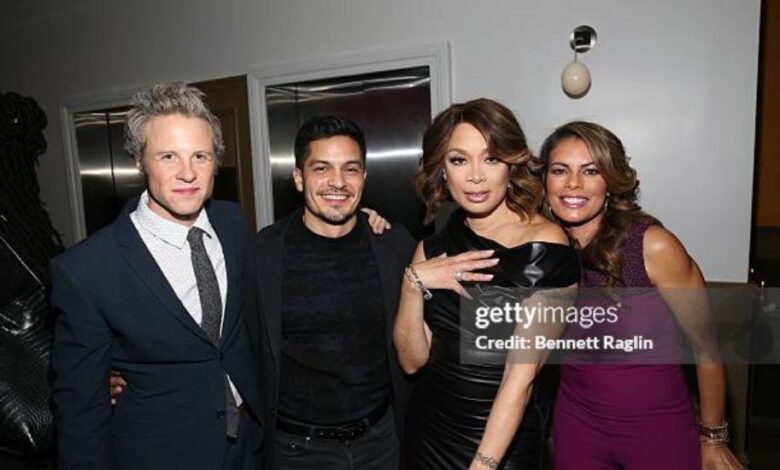Jane Mary Ashton: The Hidden Feminist Writer, Creative Mother, and Quiet Influence Behind Leo Woodall’s Rise

Introduction: Who is Jane Mary Ashton?
In the vast and ever-expanding universe of creative minds and influential personalities, few names maintain an aura of mystery and substance quite like Jane Mary Ashton. She is not a conventional celebrity, nor is she a public-facing icon. Instead, she is known as a behind-the-scenes force, shaping narratives, inspiring one of the UK’s most promising actors, and quietly contributing to the creative and literary world through her writing and influence.
Whether acknowledged for her private contributions to the arts, her advocacy on gender and identity, or her role as a deeply nurturing mother, Jane Mary Ashton is increasingly becoming a name of interest, especially among fans of her son, actor Leo Woodall, and followers of feminist literature. This article dives deep into the multifaceted life and background of Jane Mary Ashton—uncovering the woman behind the name and the power she holds through her quiet presence and thoughtful contributions.
Early Life and Personal Background
Not much is publicly available about Jane Mary Ashton’s early life, and that is precisely what adds to the intrigue. She has successfully maintained a very low public profile, allowing her accomplishments and the legacy of her family to speak volumes on her behalf.
Available records suggest that she has a background in the dramatic arts, with several sources referencing her formal training in drama. However, rather than pursuing the public stage or screen as many of her contemporaries did, Jane chose to channel her talents into writing, mentorship, and the nurturing of creativity within her household.
Jane Mary Ashton is married to Andrew Hugh Woodall, a respected actor known for both stage and screen performances. The two were reportedly married in 1990 and have three children—Leo Vincent Woodall, Gabriel Sanderson, and Constance Rose. Her ability to balance personal life with intellectual and creative pursuits has made her a pillar of her family and a quiet supporter of the arts.
A Feminist Writer Rooted in Reflection
While not widely published under her own name in mainstream commercial circuits, blog sources and biographical databases describe Jane Mary Ashton as a thoughtful, feminist writer. Her work reportedly focuses on social justice, identity, feminism, mental health, and the subtle complexities of womanhood in contemporary society.
Some of the titles associated with her include:
-
Voices Unheard
-
The Heart of a Writer
-
A Journey of Hope
-
Empowerment Through Words
These are believed to be either self-published or circulated in academic or advocacy-focused circles, though formal publishing records remain scarce. The intentional obscurity might stem from her preference to remain in the background, allowing the work to speak for itself without the influence of fame or celebrity.
The Mother Behind Leo Woodall’s Rise
Much of the renewed interest in Jane Mary Ashton stems from her connection to her son, Leo Woodall, the British actor gaining widespread recognition for his roles in The White Lotus, One Day, and the upcoming Bridget Jones: Mad About the Boy. Jane is credited with being a core influence in Leo’s early artistic formation.
According to articles from credible entertainment sources and personal blogs, Jane’s household was intellectually vibrant, full of books, conversations on identity and society, and a nurturing of performance and emotional expression. Leo’s affinity for acting was no accident—it was cultivated in an environment designed to honor emotion, depth, and performance.
Though Jane never actively stepped into the limelight herself, her behind-the-scenes work as a mother, mentor, and critic played a pivotal role in guiding Leo toward his own artistic voice. In interviews, Leo has spoken highly of his family’s support, implying that both his mother and father helped shape his creative outlook.
Literature and Advocacy: An Overlap of Influence
Jane Mary Ashton’s approach to writing is deeply rooted in personal narrative, feminist theory, and societal critique. Her essays and stories reportedly dissect topics like:
-
Women’s evolving roles in society
-
The emotional labor of motherhood
-
The underrepresentation of female voices in literature
-
Mental health and vulnerability
-
Personal identity within structured family systems
Her writing style has been described in blog posts as “lyrical, thoughtful, and fiercely intellectual“—offering reflections rather than manifestos, and inviting readers to question cultural norms rather than simply oppose them.
She has also contributed in informal capacities to causes like mental health awareness, educational equity, and gender rights advocacy—sometimes through quiet fundraising, community organizing, or participation in local workshops.
A Life of Private Power
Unlike many public figures, Jane Mary Ashton does not maintain a presence on social media. There are no verified Instagram, Twitter, or Facebook accounts bearing her name. Her privacy is both a shield and a statement—a resistance to the oversharing culture and a testament to the idea that not all power needs visibility.
Her influence emerges in the impact she has made on her family, the reverence shown in niche literary and feminist communities, and the continued curiosity surrounding her. Blogs describe her as a “quiet revolutionary”—someone who redefines what it means to be powerful, visible, and successful in the modern era.
Her Literary Themes: Intersectional, Emotional, and Empowering
Though not formally categorized in academic circles yet, Jane’s work fits well within the genre of intersectional feminist literature. She draws upon personal experience while addressing broader societal inequalities. Her protagonists are said to often be:
-
Mothers balancing identity with duty
-
Women exploring post-trauma growth
-
Young girls resisting cultural expectations
-
Artists navigating mental health and ambition
Her voice adds depth to a world increasingly hungry for authentic female stories that are neither exaggerated nor diluted for public appeal. She writes not for fame, but for impact—a trait many admire, especially among emerging writers.
Recognitions and Literary Mentorship
While there are no major awards publicly associated with Jane Mary Ashton, there are multiple blog articles that reference her role as a mentor to young writers, particularly those in marginalized communities. She is said to have:
-
Held informal writing salons at home
-
Worked with schools or libraries for youth-focused workshops
-
Privately mentored students or amateur writers
Her impact is therefore measured not in gold-plated trophies but in legacies she’s helped build, careers she’s quietly influenced, and stories she’s helped shape from behind the curtain.
The Mystery and Allure of Jane Mary Ashton
There’s a reason why so many are intrigued by Jane Mary Ashton: she is rare. In an age where public identity is currency, she offers a powerful counter-narrative. She has defined herself through intention, privacy, and authenticity. Whether through her family, her writing, or her subtle activism, she proves that impact can be quiet and still powerful.
As blogs and independent entertainment writers continue to explore her story, it becomes clear that Jane Mary Ashton represents a new kind of role model—especially for women who choose to build quietly, love deeply, and lead through influence rather than spotlight.
Final Thoughts: Why Jane Mary Ashton Matters
The story of Jane Mary Ashton is not about fame—it’s about influence without visibility, impact without noise, and love without condition. She represents a generation of women who used art, thought, and motherhood as tools of transformation. She may not dominate headlines, but her legacy is woven into the fabric of stories, minds, and even stars like her son Leo Woodall.
As her influence continues to grow in quiet waves through writing, mentorship, and family, Jane Mary Ashton remains a reminder that you don’t have to be loud to be powerful.
Her journey, though still partially hidden, continues to inspire writers, feminists, artists, and dreamers worldwide.
✍️ Article published by GlobGist
We at GlobGist honor the stories that shape cultural consciousness and redefine success. Jane Mary Ashton’s quiet revolution is one such story—a narrative worth cherishing, remembering, and passing on.



